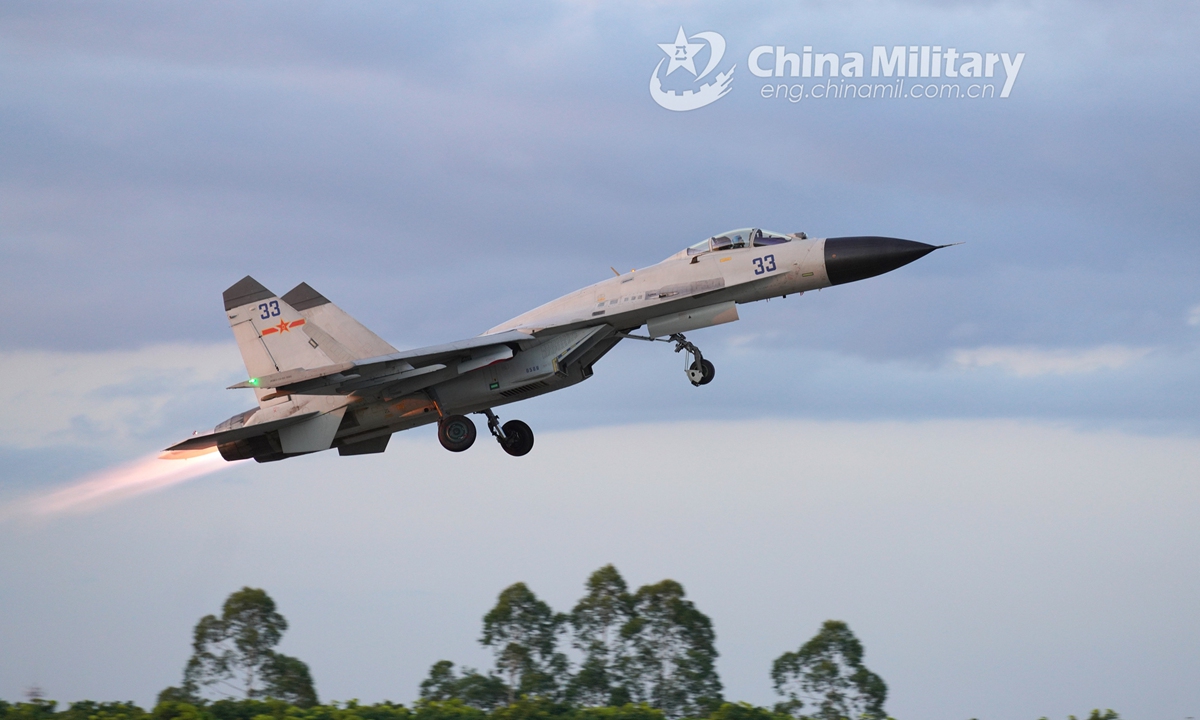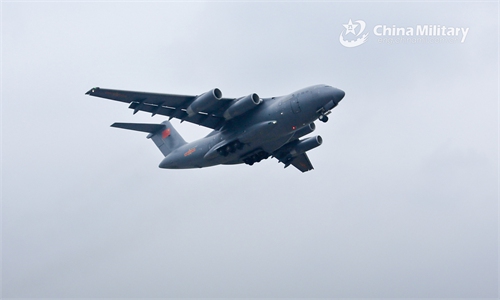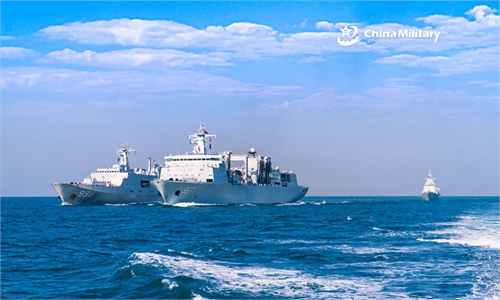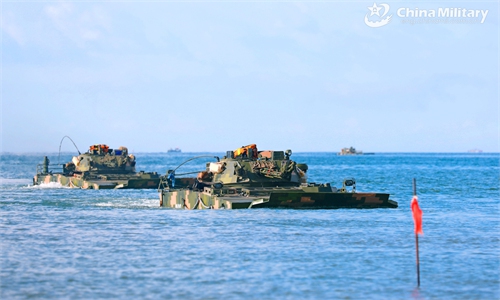US military aircraft landing on Taiwan a provocation, must not become routine: experts

A fighter jet attached to an aviation brigade with the navy under the PLA Southern Theater Command takes off from the runway during a 24-hour flight training exercise. The round-the-clock training exercise focused on subjects including free aerial combat, seizing air-superiority operation, and assault covering operation.Photo:China Military
Landing a civilian variant of military aircraft on the island of Taiwan is yet another "salami-slicing" provocation by the US, and it sent a wrong signal to Taiwan secessionists, Chinese mainland analysts said, after the US reportedly landed a civilian variant of a warplane on the island on Monday.
The Chinese mainland will not allow US military planes' recent landings on the island of Taiwan to become routine, experts said.
A US L-100-30 aircraft, which was chartered by the American Institute in Taiwan (AIT) and is a civilian-use version of the US military's C-130 transport aircraft, landed at the Taiwan Taoyuan International Airport on Monday at noon, loaded and unloaded various cargos, and took off after about an hour, Taipei-based news website udn.com reported on Monday.
Some other reports on the island said that the aircraft is affiliated with a contractor of the CIA.
The C-130, from which the L-100-30 is derived, is a medium-sized tactical transport aircraft fully designed for military use, Fu Qianshao, a Chinese mainland military aviation expert, told the Global Times on Monday.
Even if the aircraft is used by the AIT for civilian purposes, the fact that it is military in nature is a huge provocation, Fu said.
By landing the L-100-30 on the island of Taiwan, the US is using another "salami-slicing" tactic of using military aircraft in civilian disguise, a Beijing-based military analyst who requested anonymity told the Global Times on Monday.
The US has been sending military aircraft in civilian disguise for close-in reconnaissance operations on Chinese coastlines, islands and reefs, some of them deployed by defense contractors and some of them faking their identification codes as civilian aircraft, the analyst said, noting that this could also happen when it comes to US military landings on the island of Taiwan.
The landing by the L-100-30 came after a US Air Force C-146A plane and a C-17 transport aircraft landed on the island on Thursday and June 6, respectively.
Since the US has been frequently sending military aircraft to land on the island of Taiwan, the Chinese mainland could expand its air defense identification efforts near the island, assess the situation of the aircraft near it, and send warplanes to identify, track and drive them away when necessary, Fu said.
The Chinese mainland should not allow this serious condition to become routine, and there should be countermeasures, Fu said.
The Chinese People's Liberation Army (PLA) Army and Navy held joint amphibious landing exercises in the waters off East China's Fujian Province on Friday, geographically divided from the island of Taiwan only by the Taiwan Straits, just one day after the C-146A landed on the island.
Also on Friday, the PLA conducted military exercises in the waters off East China's Zhejiang Province in the East China Sea, not far from the northern entrance to the Taiwan Straits, with media on the island saying the exercises were related to the landing by the C-146A.
China is gravely concerned about a US Air Force plane landing on the island of Taiwan on Thursday, and any trespassing by foreign ships or planes into China's airspace or territorial waters will result in serious consequences, Chinese Ministry of National Defense spokesperson Wu Qian said on Thursday, while warning the US to stop playing with fire.




